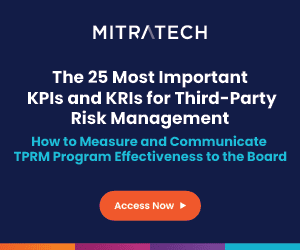Standard Arbitration Clauses Might Not Always Be in a Company’s Best Interest
Many companies include arbitration clauses in their employment contracts or have their workers sign stand-alone arbitration agreements. There are numerous potential benefits to this practice.
Arbitration provides fewer discovery options than the court system, which can reduce the expense of litigating a dispute and it eliminates the prospect of a jury trial, where the result is often unpredictable and the verdict sometimes excessive. Arbitration also helps companies maintain confidentiality regarding disputes, and their resolution and arbitration clauses with class action waivers can reduce exposure to that costly sector of litigation. These are but a few examples.
Arbitration is not a one-size-fits-all solution, however. Depending on the circumstances, companies facing employment claims could end up wishing they had been in court. It pays to give thoughtful consideration to the potential pitfalls of the arbitration process before implementing an arbitration agreement.
As an initial matter, even an air-tight arbitration clause might not keep a company out of court altogether. Employees often file employment claims in court despite the existence of an arbitration clause. In such situations, the company is forced to move to compel arbitration, which adds an additional procedural step to the process before the merits of the claim can be addressed.
It is also important to remember that, even if an employee consents to arbitration, such an agreement does not foreclose the worker’s ability to file a charge with government agencies such as the Equal Employment Opportunity Commission (EEOC), Department of Labor (DOL) or National Labor Relations Board (NLRB). As a result, the company could find itself arbitrating with the individual employee while at the same time defending against a government investigation of the employment practices at issue.
Another potential downside to arbitrating employment actions is that it tends to be more difficult to short-circuit meritless claims in arbitration than it is in court. Employees who file suit in court can face procedural hurdles, such as exhaustion of remedies or statutes of limitation, which can lead to early dismissal. The ability to file a pre-trial motion for summary judgment to defeat claims that lack sufficient evidentiary support is also a potent weapon in favor of employers in the judicial setting.
By contrast, arbitrations are typically decided during a hearing on the merits. Arbitration can therefore allow employees with weak claims to remain “in the game” longer than they might in court, at a resulting increase in cost.
Furthermore, during an arbitration hearing, an employee will typically be able to present a broader swath of supporting proof than would be allowed in court, where a judge will strictly enforce the rules of evidence. For example, hearsay statements that would usually be excluded from a court proceeding might be permitted and considered by an arbitrator.
Another factor to evaluate is that a private arbitrator might be more inclined to make a decision based on fairness concerns than would a judge who is strictly following legal precedent. So-called “split the baby” results are more likely in an employment arbitration than in a judicial forum.
Companies that include class or collective action waivers in their arbitration agreements also need to be aware of the NLRB’s continued antagonism to such provisions on the basis that they violate the National Labor Relations Act’s (NLRA) prohibition on interference with “concerted activity” by employees. Multiple court opinions have upheld class-action waivers in arbitration agreements, including the decision of the U.S. Court of Appeals for the Fifth Circuit reversing the NLRB’s D.R. Horton ruling on the issue (D.R. Horton, Inc. v. National Labor Relations Board, 737 F.3d 344 (5th Cir. 2013)).
Nevertheless, the NLRB continues to rule that such provisions violate the NLRA (Murphy Oil USA, Inc. and Sheila M. Hobson, NLRB Case No. 10-CA-038804 (Oct. 28, 2014)). Pending U.S. Supreme Court action or a change in NLRB policy, class and collective action waivers in arbitration agreements will continue to be subject to attack.
Despite these and other pitfalls of the arbitration process, it may still prove to be the most effective and efficient means of resolving many employment claims. Ultimately, whether arbitration is the best approach will depend on the nature of the company’s business, its workforce and the types of claims it typically experiences. Management, human resources staff and compliance officers should work closely with legal counsel to evaluate whether the benefits of employee arbitration agreements exceed the costs so that the company chooses the right path.



 Andrew P. Sherrod is a partner and co-chair of the Employment Law Practice Group at Hirschler Fleischer (Richmond, Va.). He helps businesses across the country to navigate complex employment law issues. He may be reached at (804) 771-9575 or by email at
Andrew P. Sherrod is a partner and co-chair of the Employment Law Practice Group at Hirschler Fleischer (Richmond, Va.). He helps businesses across the country to navigate complex employment law issues. He may be reached at (804) 771-9575 or by email at 







